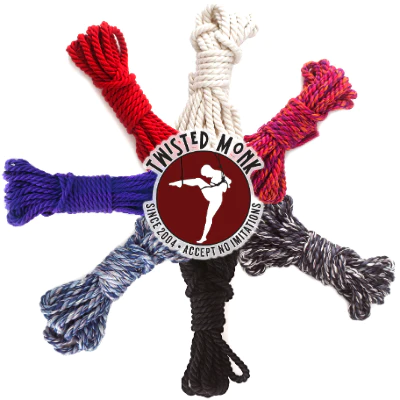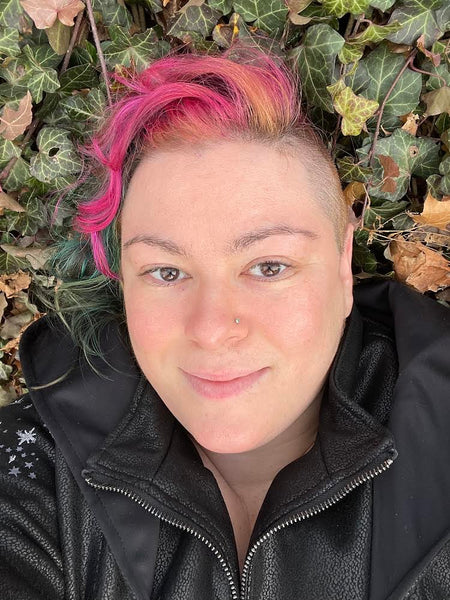How to Be an LBGTQ+ Ally During Pride Month—and the Rest of the Year
Every June, like clockwork, brands roll out rainbow logos, highlight LGBTQ+
employees on social media, and make bold statements of inclusivity. Your
neighbors may hang a rainbow flag—but only during June. Your friends may wish
you a well-intended “Happy Pride” or buy something from a brand’s Pride-
themed “capsule collection.” But what are these brands and people really doing
to support the LGBTQ+ community beyond Pride Month in a real and meaningful
way?
There are lots of ways to be an LGBTQ+ ally during Pride. This is by no means an
exhaustive list—please consider it a place to get started. Here are 14 ways you
can support LGBTQ+ communities beyond buying rainbow-themed merchandise.
Educate yourself
Sure, it’s OK if you want to attend a local Pride parade. But please, take a minute
to learn about the events that put LGBTQ+ visibility on the map. Learn about the
Harlem drag balls in the 1920s and ’30s, how the Stonewall Riots served as a
catalyst for the Gay Rights Movement, look at the heroic efforts of Harvey Milk,
and watch “Paris Is Burning,” the definitive documentary on the New York
ballroom scene in the 1980s and 1990’s.
Reframe “ally” as an action rather than a label
Being a good ally is more than lip service. It’s OK to say you’re an ally, but take a
long hard look at how you actually speak up and take action for the LGBTQ+
community. What are you doing to create equity, inclusion, and real impact?
Allies can leverage their position of privilege to advocate for marginalized groups,
particularly in spaces where they are not always heard. When they speak
up, allies should first acknowledge their privilege, then engage in difficult social
justice dialogues and fight for equality among the oppressed. Showing up for
LGBTQ+ friends, family, colleagues, and neighbors is the first step to achieving
real change.
Use the right pronouns
Asking for and correctly using someone’s pronouns shows respect, acceptance,
and support for a person’s gender identity (or emotional and psychological sense
of their own gender) – especially those who are transgender, non-binary, or
gender non-conforming. Pronouns don’t necessarily align with a person’s
appearance or the sex a person was assigned at birth. Never assume someone’s
pronouns based on their appearance – it only reinforces harmful stereotypes
about gender expression. If you don’t know someone’s pronouns, ask. A simple
“Which pronouns do you use?” will suffice. And if you slip up, apologize, correct
yourself, and continue the conversation. It will get easier with practice. The first
step is consciously trying to get a person’s pronouns right.
Call out hate on social media
According to a 2021 Social Media Safety Index by GLAAD, social media sites —
Facebook, Instagram, YouTube, TikTok, and Twitter — are all “effectively unsafe
for LGBTQ users.” In addition, it cites a 2021 report by the Anti-Defamation
League (ADL) finding that queer and transgender people experienced
disproportionately high rates of harassment online: 64% compared to 41% for the
general population.
If you see hate, bullying, or harassment, report it. (Reporting rates are increasing
but still dangerously low.) And if you have kids, talk with them about their online
lives and experiences. Any hate directed toward LGBTQ+ kids should be taken as
seriously online as offline.
Support gender-affirming care
State legislatures, governors, and administrative agencies nationwide are taking
steps to eliminate access to gender-affirming care—medically necessary, safe
healthcare backed by decades of research and supported by every major medical
association representing over 1.3 million U.S. doctors. Unfortunately, those
backing these bills also seek to ban this care for adults. The Association of
American Medical Colleges does a great job explaining gender-affirming care. At
the same time, GLAAD offers excellent resources on transgender topics.
GoFundMes for Gender Confirmation Surgery
Gender-affirming care can help a person live authentically. There isn’t one way for
a person to transition, and transition can include legal, social, and medical steps.
Help transgender people take the medical steps to help them feel their body align
with their gender by contributing to a gender confirmation surgery fundraiser. All
fundraisers have been verified by GoFundMe.
Support Rainbow Railroad
In countries worldwide, LGBTQ+ people face violence and oppression simply
because of who they are and who they love. Rainbow Railroad helps them escape
state-sponsored violence and get to safety.
Subscribe to Erin In The Morning
If you want to stay in the loop of what’s happening in queer and trans legislation
around the US, subscribe to Erin Reed’s Substack, Erin In The Morning. She does
an excellent job of taking massive amounts of news and summarizing it into
digestible, almost daily updates. Also, her Anti-trans Legislative Risk Map is an
invaluable resource for keeping tabs on the ever-changing legal landscape for
trans people.
Write to a youth camper
CampOUT is a non-profit summer camp for youth ages 10-17 from all spectrums
of the rainbow and LGBTQ+ community. More than ever, LGBTQ+ youth in Florida
need our support. Send supportive letters via snail mail to campers at:
P.O. Box 8734
Tampa, FL 22674
Please have all letters postmarked by July 1, 2023.
Get an incarcerated pen pal
It can be especially dehumanizing to be an LGBTQ+ person in prison. According to
the National Center for Trans Equality, trans women are twice as likely as the
average person to have spent time behind bars. The risks of incarceration are
even more extreme for transgender people of color. Pen pal relationships are a
harm reduction strategy. Not only do they remind the person in prison of their
inherent value, they give them a support system outside of prison and signal to
guards and other inmates that people care about an LGBTQ+ inmate’s well-being.
If you’d like to be matched with an incarcerated member, check out Black & Pink
National’s pen pal program here.
Support abortion rights
According to the National LGBTQ Task Force, about 56% of transgender and
gender-nonconforming people say they have experienced healthcare
discrimination when seeking medical care—and that was before Roe v. Wade was
overturned. Abortion restrictions across the U.S. affect transgender men, as well
as non-binary people who can get pregnant. So, it’s imperative to not fight just for
women’s rights but also for everyone affected by the overturning of Roe.
Donate to LGBTQ+ organizations
Every June, the rainbows come out, and too many corporations virtue-signal
support of the LGBTQ+ community for 30 whole days. Then, like clockwork, they
pack up their “Love Is Love” banners until the following year. Sure, there’s a big
push to put your money where your mouth is during Pride Month (and by all
means, do, but recognize there is financial need the 11 other months of the year),
but consider making a regular monthly donation to a worthy charity. A few we
support include The Trevor Project, the Human Rights Campaign Foundation
(HRC), National Center for Transgender Equality, Lambda Legal, and SAGE
(Services and Advocacy for Gay, Lesbian, Bisexual, and Transgender Elders).
Check and see if companies have a history of supporting anti-LGBTQ+ political
candidates
Socially conscious consumers can install Progressive Shopper’s Chrome extension
to learn about a company’s political leanings. It will also let you know of any other
sketchy dealings so you can shop with your values.
Support queer-owned sex toy retailers
Studies have shown that having orgasms reduces stress by boosting the feel-good
chemicals in the brain and reducing stress hormones. And people who identify as
LGBTQ+ are at least twice as likely to have mental health challenges compared to
the general population. So, if you feel inclined, support queer-owned sex toy
retailers. Here are a few that we like:
● Bumpher
● Cute Little Fuckers
● Kheper Games
● Lorals
● New York Toy Collective
● Origami Customs
● Oxballs
● Perfect Fit
● Rascal Toys
● SpareParts HardWear
● Vixen
Also in News

Exotic Bamboo Rope Review by Pete Riggs of Ropeconnections.com
Pete Riggs of Ropeconnections.com recently did a very through and in depth review of our exotic bamboo ropes, including washing! Check it out, along with tons of other great rope content and tutorials!


